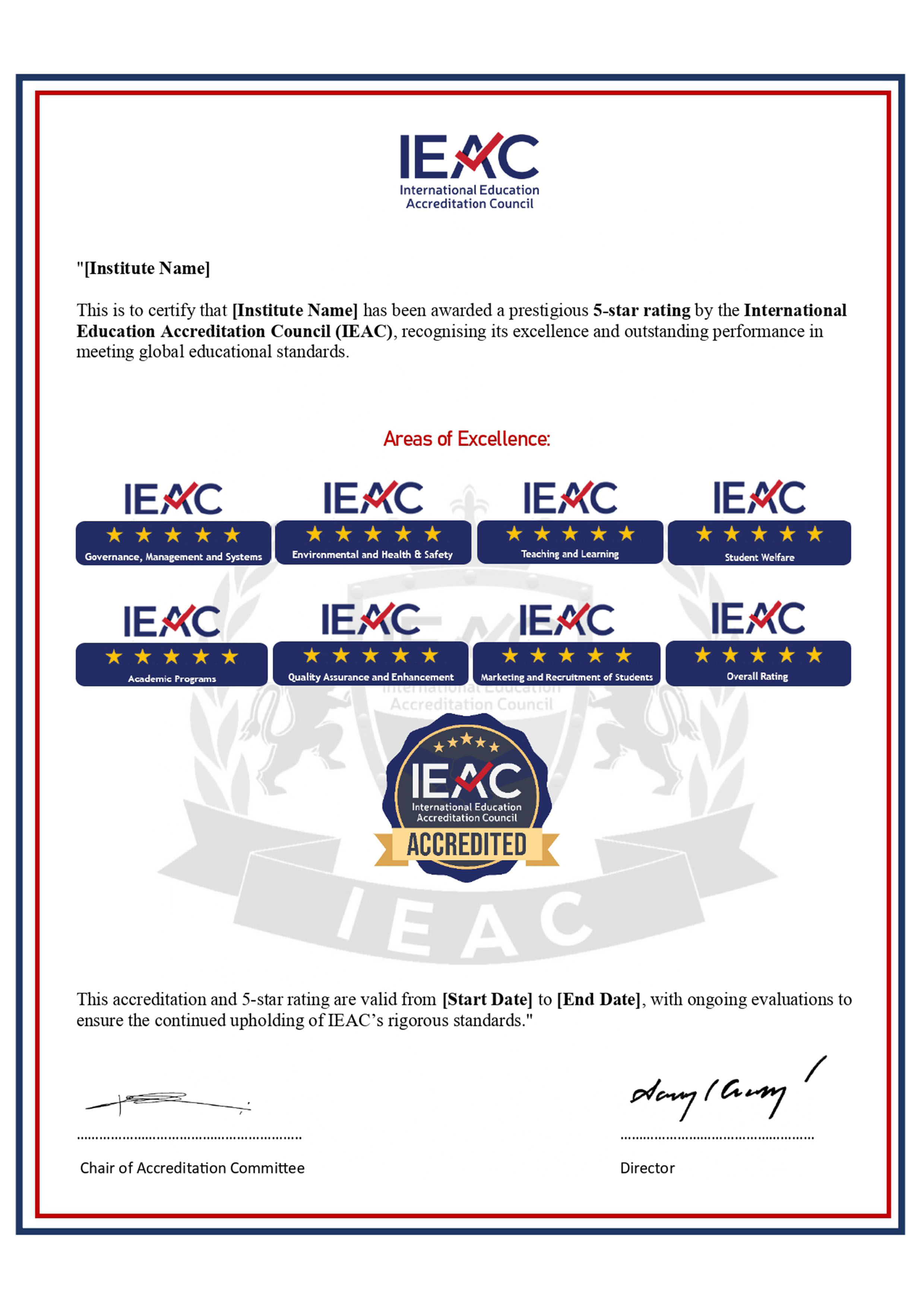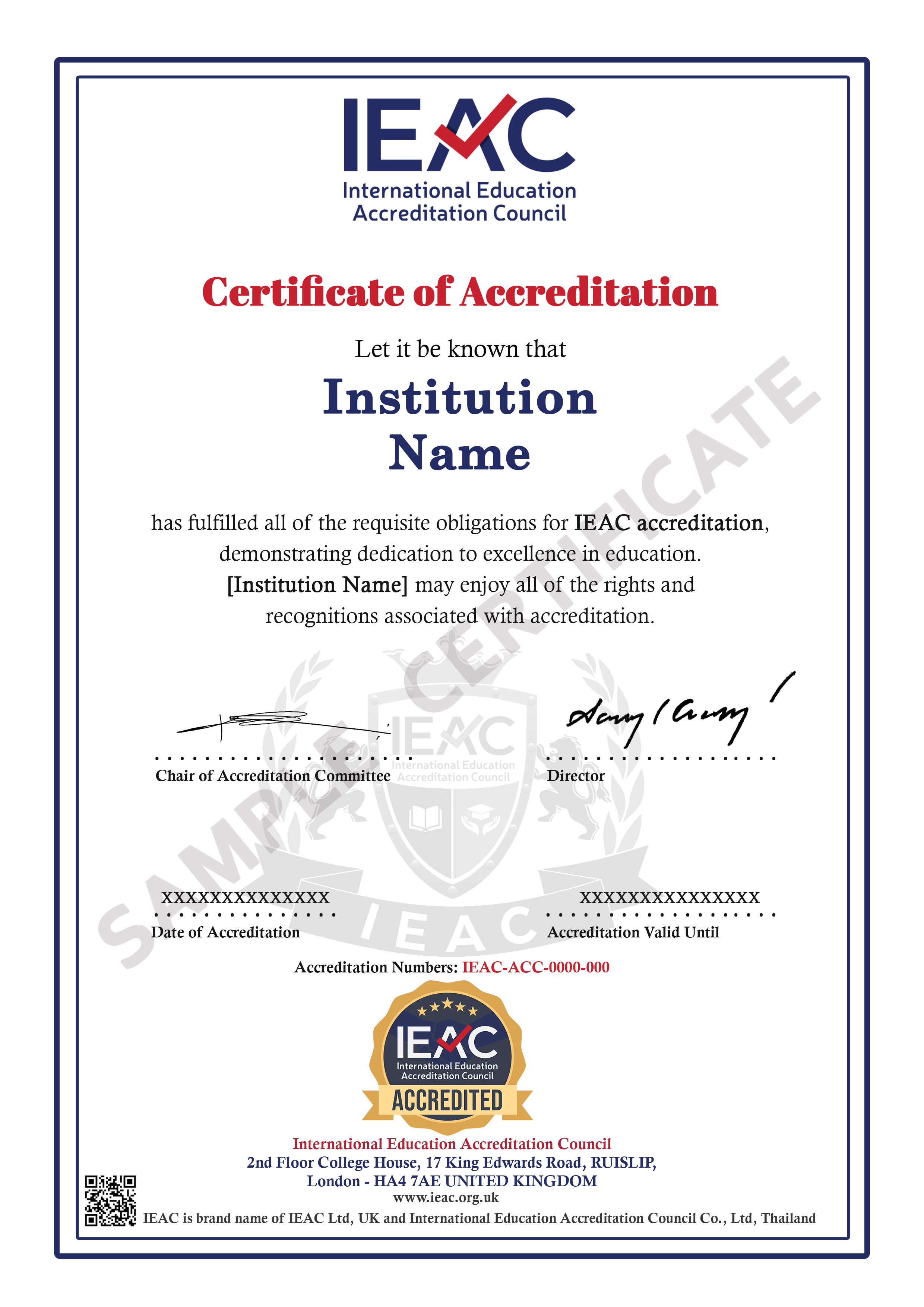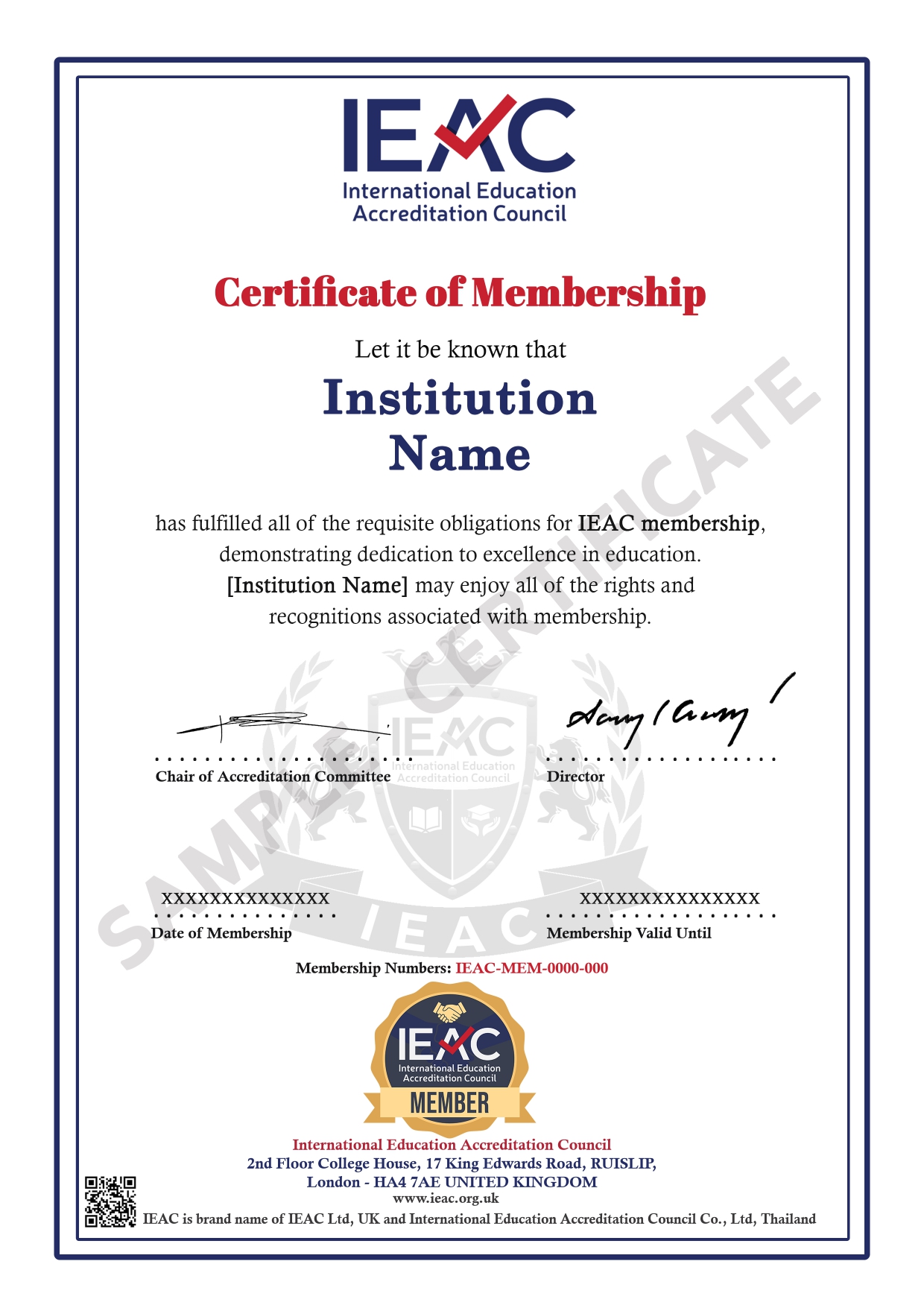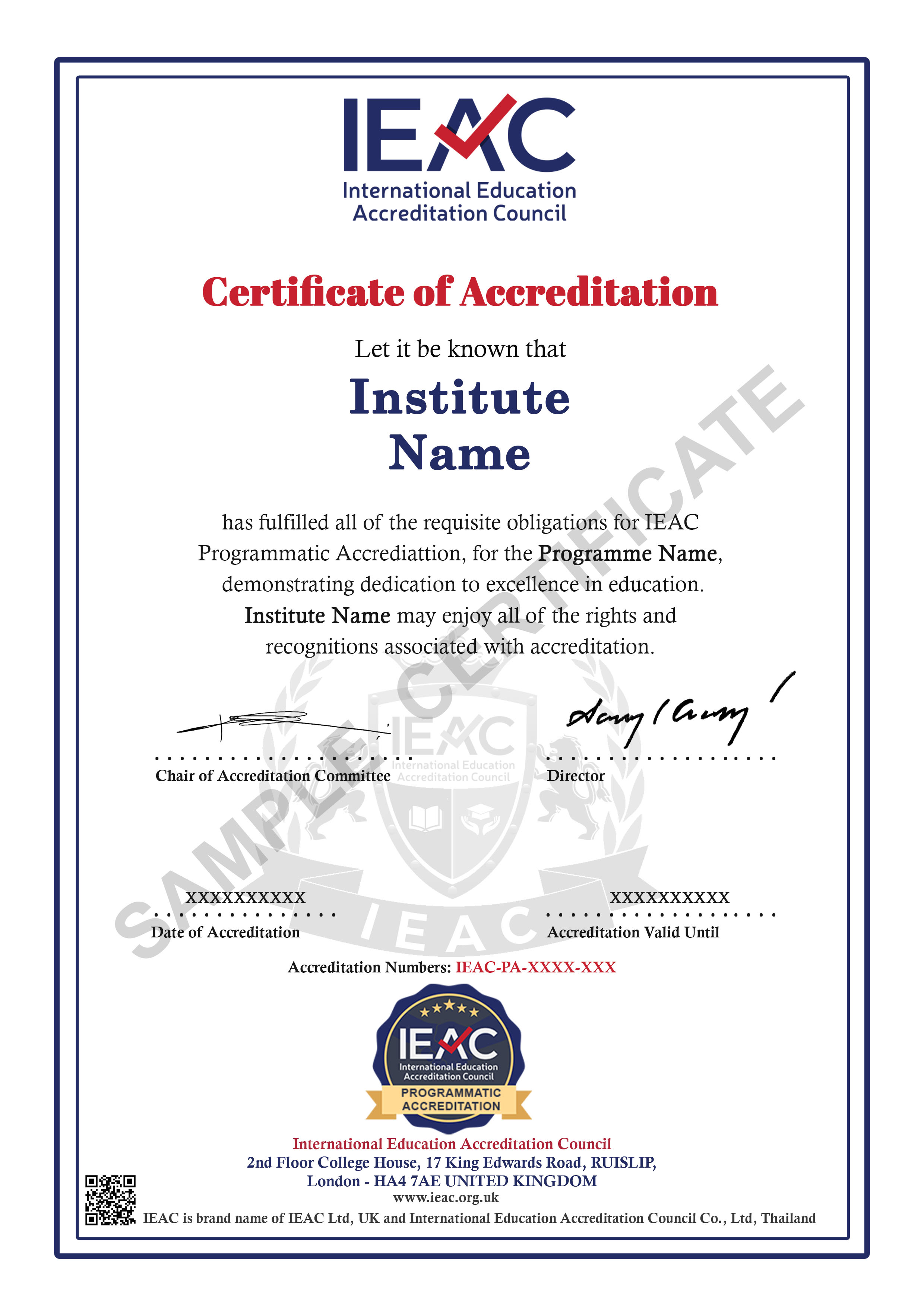- Home
- About IEAC
- Accreditation
- University Accreditation
- College Accreditation
- Online Institution Accreditation
- School Accreditation
- University Recruitment Agency Accreditation
- Programmatic Accreditation
- Teacher/ Lecturer Accreditation
- Religious Institutes Accreditation
- Affiliate Accreditation
- Research Accreditation Candidacy Accreditation
- IEAC Membership
- Institutions Accredited
- Accreditation Process
- Contact Us Webinar Apply Now
Accreditation Process With IEAC
Accreditation Process With IEAC
Lorem ipsum dolor sit amet, consectetur adipiscing elit, sed do eiusmod tempor incididunt ut labore et dolore magna aliqua. Quis ipsum suspendisse ultrices gravida. Risus commodo viverra maecenas accumsan lacus vel facilisis.
Accreditation Process With International Education Accreditation Council (IEAC)
IEAC is an independent organisation specialising in the accreditation of educational institutions and/or the programs they run, with the primary objective of ensuring they meet specific standards of quality and effectiveness.

IEAC Inspectors are highly experienced educators who have taught in a range of academic settings, and many have upper-echelon education administrative experience. IEAC Inspectors are recognised globally for their expertise in evaluating educational institutions and working hand-in-hand with member institutions to foster continuous improvement.
The IEAC accreditation process has been designed to be a collaborative effort between the institution and the IEAC Team, working through a systematic and rigorous evaluation. It includes an initial guided self-assessment, and then a joint walk-through of all areas included under the accreditation application.
“WE are here to WORK WITH YOU and will be with you EVERY STEP OF THE WAY.”
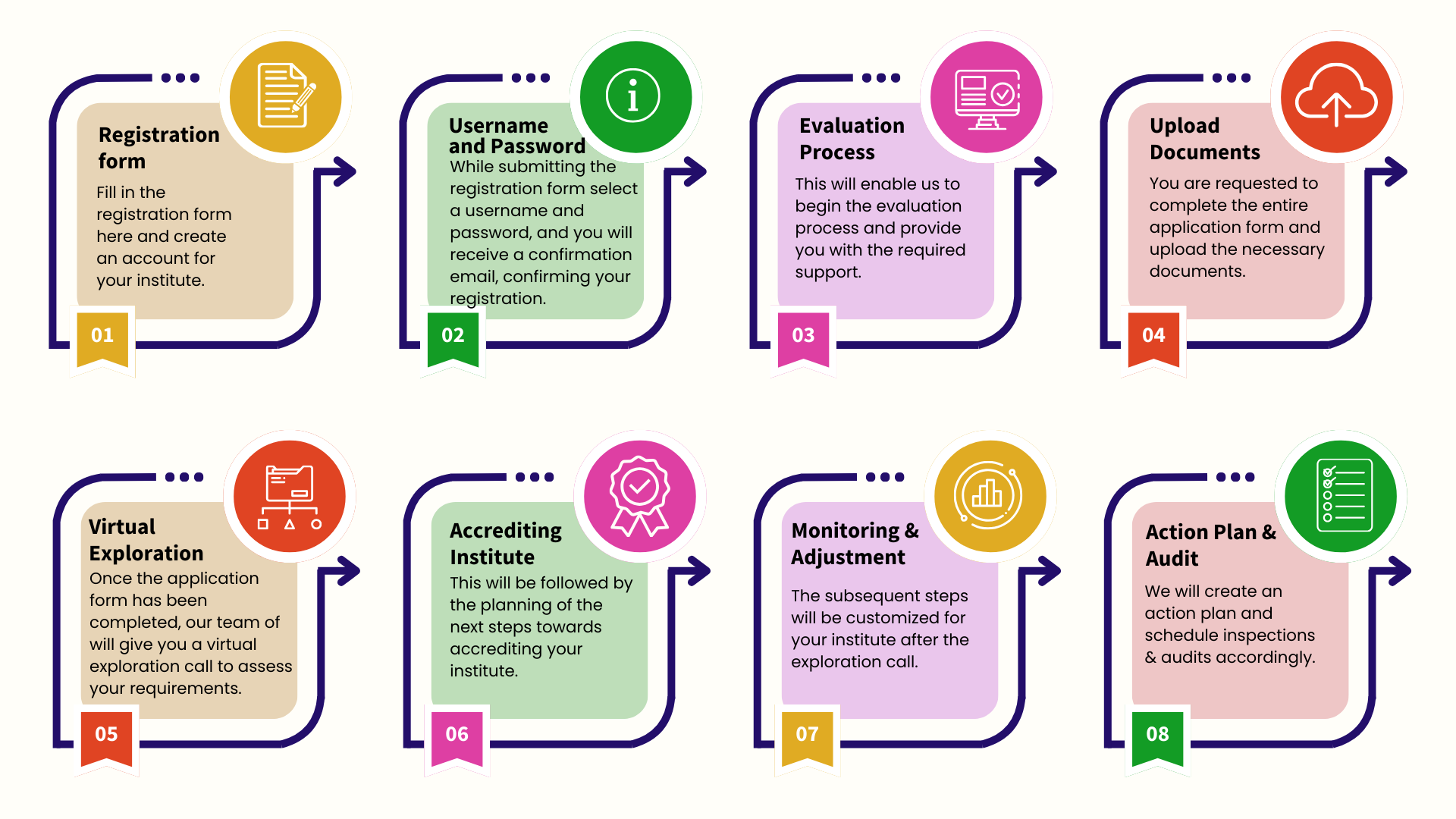
Application
To initiate the educational accreditation process, Institutions apply for accreditation with IEAC, providing documentation covering information such as the institution’s mission and values, goals, curriculum, faculty qualifications, student services, and other relevant supporting material.
Preparation And Self-Study
Once your application is received, an IEAC Liaison Manager will be appointed to help you begin your self-assessment, where you and your key staff members review your programs, policies, and operations against the IEAC standards.
Site Visit
As soon as the self-assessment is completed, and at a time which is convenient to the institution seeking accreditation, IEAC will conduct an on-site visit. During the visit, the inspector will set-up an evaluation team, which may include faculty members, administrators, and other subject matter experts, who will assess the institution's facilities, interview staff, faculty, and students, and observes classes in action. For Online institutions this may be done remotely.
Evaluation Parameters
You might be curious about the scope and parameters of accreditation with IEAC. IEAC Accreditation encompasses academic quality, institutional integrity, and continuous improvement. Key criteria encompass staff qualifications, curriculum relevance, student learning outcomes, and institutional resources such as libraries, classrooms, student facilities, and laboratories. Moreover, institutions must demonstrate financial stability, ethical practices, effective governance, and a commitment to the health, safety, and security of both staff and students.
IEAC will evaluate your institution's mission and its alignment with the various faculties' approaches to teaching and learning. Additionally, we will assess your dedication to inclusivity, diversity, community involvement, and student support services. Our mission is to ensure that your institution maintains high educational standards, thereby fostering credibility and accountability within the academic community.
Accreditation with IEAC bestows credibility and promotes your institution as one that offers a quality education and learning environment.
Evaluation And Decision
Following the onsite evaluation, the IEAC Inspector will meticulously review the self-study report, accompanying documentation, and insights gathered during the site visit. Based on this comprehensive assessment, the Lead Inspector will ascertain whether, in their professional judgment, the institution meets the established standards for accreditation. Subsequently, the Lead Inspector will draft a thorough report, which will undergo independent analysis by the committee.
In addition, the Inspectors may award up to 5 Stars to demonstrate excellence in various
 Duty of Care activities;
Duty of Care activities;
 Duty of Care to Students
Duty of Care to Students
 Duty of Care to Staff
Duty of Care to Staff
 Duty of Care to the Academic Process
Duty of Care to the Academic Process
 Duty of Care to the Environment and Sustainability
Duty of Care to the Environment and Sustainability
 Duty of Care to Inclusivity, Diversity and Equity
Duty of Care to Inclusivity, Diversity and Equity
 Duty of Care to the Community
Duty of Care to the Community
An overall Star rating will then be decided by the Accreditation Committee
Utilizing the Inspector’s report, the IEAC accreditation committee will deliberate on whether to grant full accreditation or defer accreditation pending the provision of additional information or actions to enhance specific areas identified during the inspection. In instances where the initial application for accreditation does not meet the required standards in any assessment domain, IEAC may initially deny accreditation. However, in such cases, IEAC remains committed to providing a detailed assessment delineating all areas of deficiency and furnishing clear, actionable recommendations for improvement.
Additionally, IEAC offers the opportunity to schedule a follow-up assessment, if necessary, within a mutually agreed-upon timeframe. Recognizing the dedication and effort invested by institutions throughout the application process, IEAC pledges to provide an accreditation determination within 14 working days.
Ongoing Monitoring
Accreditation is not a one-time event; it requires ongoing compliance with standards. Accredited institutions are typically reviewed by IEAC every 4 years, and in the interim, they must submit biennial reports to demonstrate continued adherence to accreditation standards.
Reaffirmation / Reaccreditation
Accreditation is generally granted for a 4-year period, at which time, institutions go through a reaccreditation process to renew their accreditation. This involves submitting updated documentation, undergoing additional site visits if necessary, and demonstrating ongoing compliance with accreditation standards.
